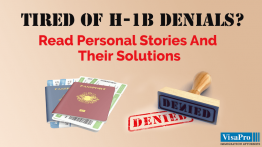- A U.S. citizen returning from Europe surrenders toy-stuffed, egg-shaped confections.
- An Asian visitor surrenders fake U.S. currency intended to be used during a ritual burial.
- European visitor surrenders fine Cuban-made Corona cigars.
- A visitor from the Mediterranean surrenders lamb to be used in a traditional festival.
- A U.S. citizen surrenders a narcotic pipe purchased during a Caribbean vacation.
These stories are true. Over a million returning travelers and foreign visitors enter the United States by sea, by vehicle or by air everyday. Some attempt to enter the country with items that are prohibited by law as dangerous to our citizens, our agriculture or our commerce, or that are prohibited by international laws and treaties. Consequently, U.S. Customs and Border Protection (CBP) officers were duty-bound to detain and destroy these and many other types of inadmissible items.
Now that schools all across the region are letting out for summer and families are anxiously anticipating long-awaited vacations to fascinating destinations around the globe, CBP urges citizens to take one step equally as important in planning their vacations — visit CBP’s “Know Before You Go” website. The site provides travel related regulations and tips to help protect the traveler.
“We know that travelers plan extensively for international vacations, and we’re just asking that they take that one last step and know what they can and can’t bring into the United States,” said Michael Lovejoy, director of CBP’s Baltimore field operations office. The CBP Baltimore field office includes popular airports and seaports in Southern New Jersey, Pennsylvania, Delaware, Maryland and Northern Virginia.
“The ‘Know Before You Go’ website is a vital planning resource that provides the rules governing what items people can legally bring to the U.S.,” said Lovejoy. “I’d hate to see anyone unnecessarily lose their hard-earned money by purchasing items inadmissible to the U.S., especially in today’s economic environment.”
To provide travelers a sense of the prohibited items that CBP officers seize most often, the CBP Baltimore field office is releasing the following Top-10 list of inadmissible items.
Top-10 Most-Seized Inadmissible Items
- Smaller Kinder or Caffarel Eggs (small toy-stuffed chocolate confections)
- Cuban cigars
- Fresh, dried, canned meats or meat products
- Many types of fruits and vegetables
- Counterfeit commercial merchandise (handbags, watches, clothing, etc.)
- Most plants, cuttings, seeds, unprocessed plant products or plant-based handicrafts
- Many types of medications purchased outside the U.S.
- Drugs and drug paraphernalia
- Absinthe (a distilled spirit containing thujone known to produce psychedelic effects)
- Fake U.S. currency, or Hell Notes that appear too similar to legitimate U.S. currency
“Travelers take extraordinary care to learn as much as they can to prepare for their foreign destination, we’d like them to exercise the same level of care to prepare for their return trip home,” said Lovejoy.
For the latest news and for more information on international travel and advice for quickly clearing customs, please visit the CBP Travel website.
 Kishin Bhavnani, Managing Director, Afro International Ltd Inc
Kishin Bhavnani, Managing Director, Afro International Ltd Inc



